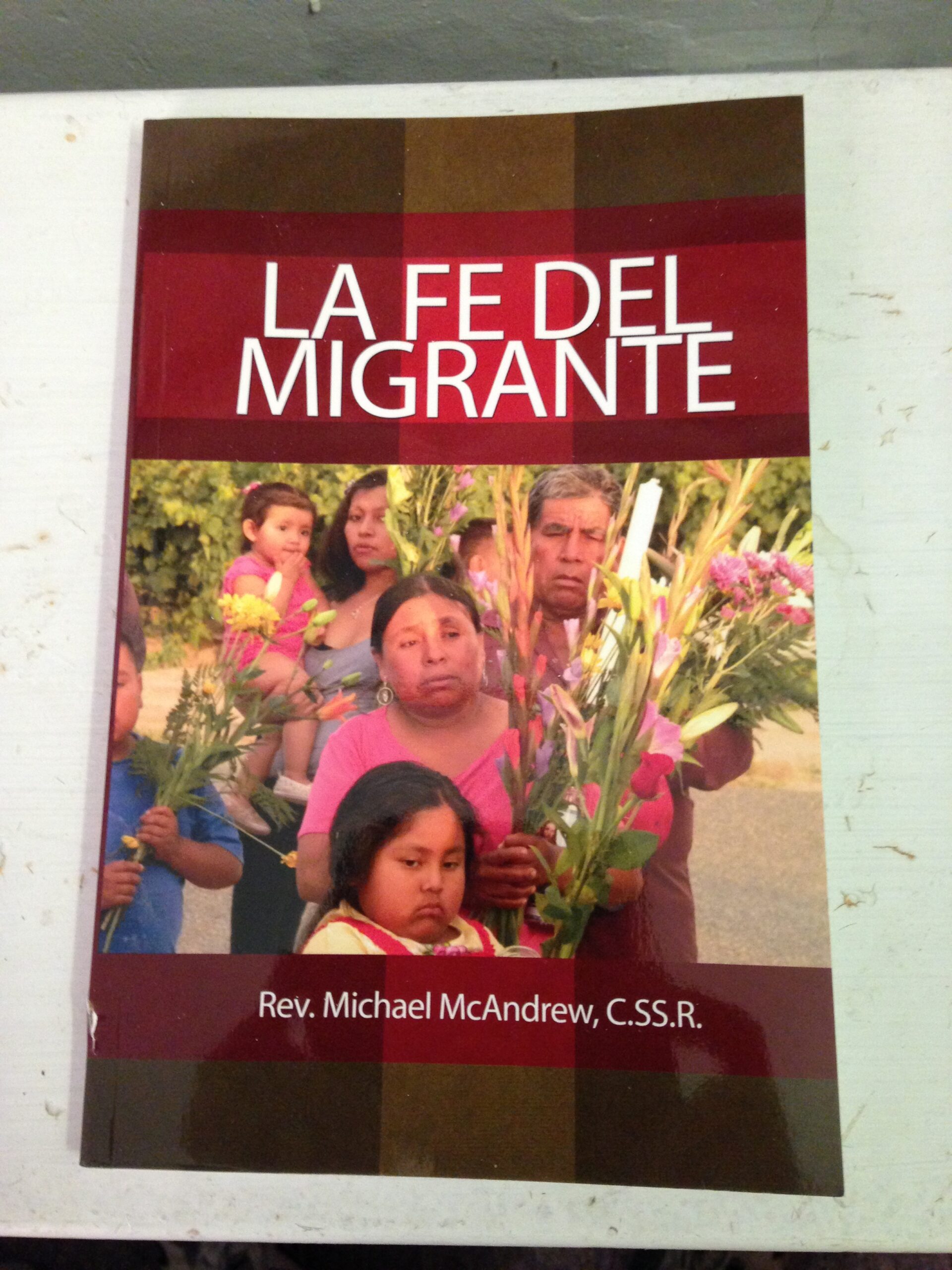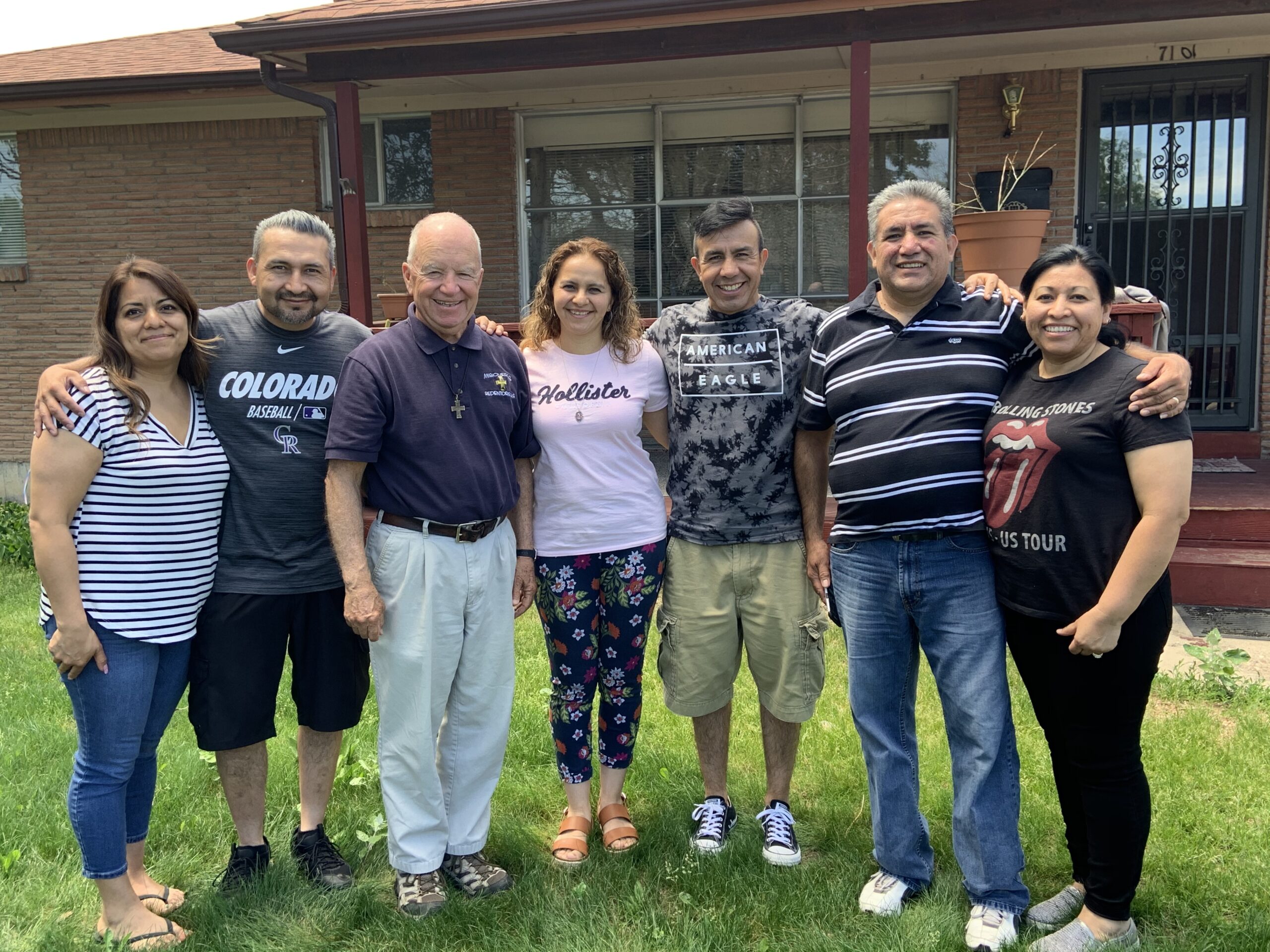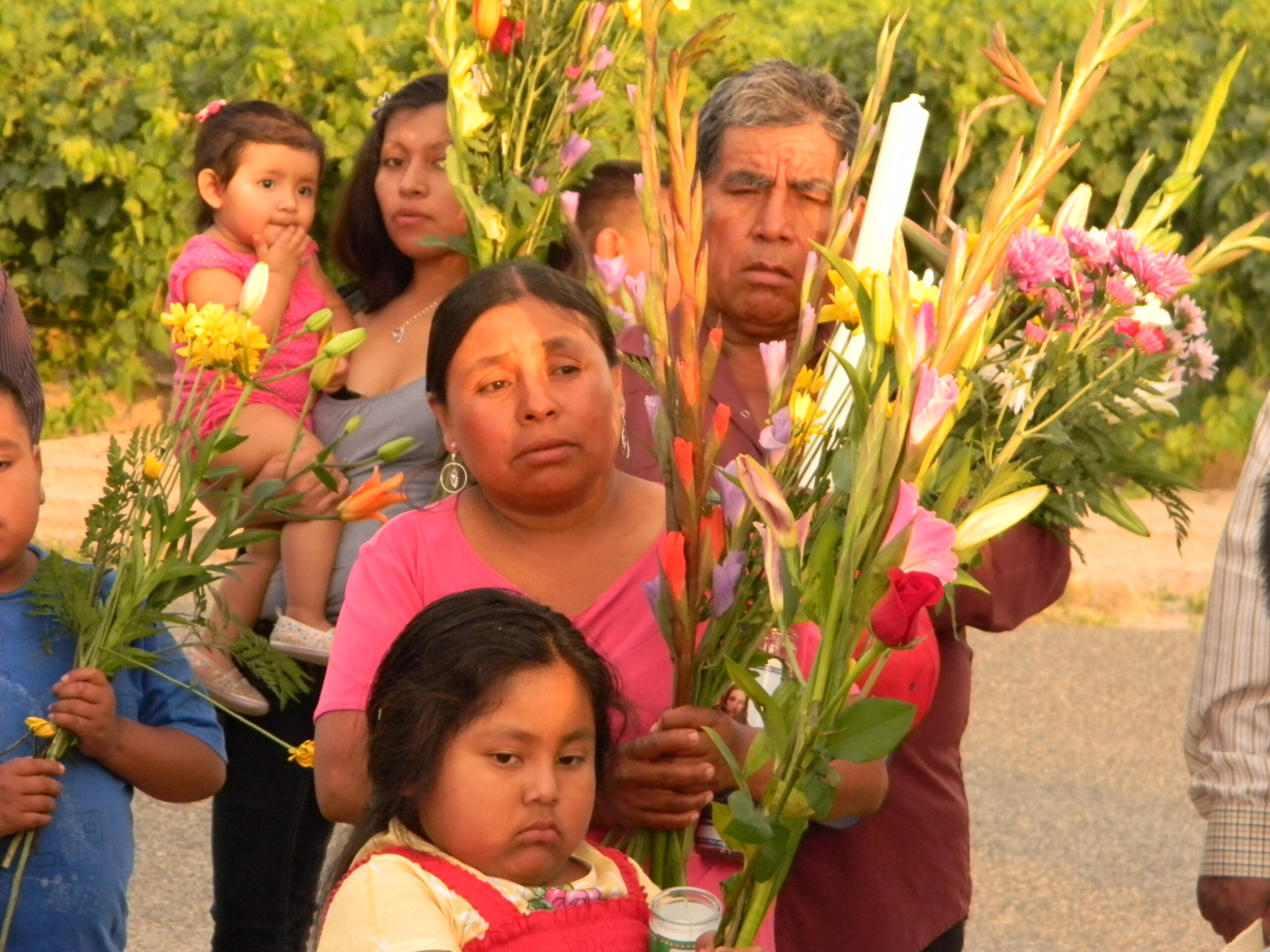Migrant Faith, Chapter One (considered in 2020)
(Reconsidering “Migrant Faith” after seven years)
(Considerar “La Fe del Migrante” después de siete años)
Migrant Faith: Chapter One (Considered in 2020)
I introduced the ministry of Padre Migrante as “walking with my people.” The impetus behind inviting people to “walk with” the migrant is to address one of the greatest challenges we face both in society and in religious ministry. We live in a time of such divisiveness that we fail Jesus’ mandate to his disciples, that they “love one another as I love you.” (Jn.15:12) The polarization of people fueled by politics, fear, pandemic, and politicized religious leadership fails everyone. We are living Good Friday, without confidence in a new Easter. The migrant and the immigrant become objects to critique and tolerate rather than people whom we come to know and love.
Chapter One of Migrant Faith invites the reader to recognize the person of the migrant rather than the problems caused by migration. As a priest working with migrants, too often I am involved in a “justice ministry” response to migration, and I have to remind myself of our Redemptorist mission to evangelize and to be evangelized by the migrant. I wrote chapter one of Migrant Faith, not just for others, but also to challenge myself in remembering that as a priest, it is the spiritual care of the poor that is my mission. It begins by recognizing the profound faith of migrants.
Looking at chapter one, seven years later, it still has great value. A woman after reading my book summer said, “Padre, you know us.” I asked why she said that. The reflection in Chapter One on the importance of “accompanying migrants rather than working for migrants” was most notable. Before we can address Pope Francis’ concern for the lack of spiritual care of the poor, we need to understand the challenges that we seek to overcome.
One of the sections most urgent today was addressed by Pope John Paul II when he called for a new evangelization that is “new in its ardor, methods and expression.” We need to heed Pope Francis’ directive to abandon the attitude, “We have always done it this way.” Perhaps we may recognize a path to new methods and expression in ministry, in some of the adjustments we are doing as a result of the COVID19 pandemic. There are experiments in having parents prepare children at home for the sacraments that promote greater parent commitment to the formation of their children in ways of faith.
(Tomorrow, I will post my Sunday Readings reflection, and after that present further reflections on Migrant Faith)
La Fe del Migrante: Capítulo uno (Considerarlo en 2020)
Presenté el ministerio del Padre Migrante como “caminar con mi pueblo”. El ímpetu detrás de invitar a la gente a “caminar con” el migrante es abordar uno de los mayores desafíos que enfrentamos tanto en la sociedad como en el ministerio religioso. Vivimos en una época de tanta división que fallamos en el mandato de Jesús a sus discípulos de que “se amen unos a otros como yo los amo a ustedes”. (Jn.15: 12) La polarización de la gente alimentada por la política, el miedo, la pandemia y el liderazgo religioso politizado les falla a todos. Vivimos el Viernes Santo, sin confianza en una nueva Pascua. El migrante y el inmigrante se convierten en objetos de crítica y tolerancia en lugar de personas a las que llegamos a conocer y amar.
El Capítulo Uno de La Fe del Migrante invita al lector a reconocer la persona del migrante en lugar de los problemas causados por la migración. Como sacerdote que trabaja con migrantes, con demasiada frecuencia estoy involucrado en una respuesta de “ministerio de justicia” a la migración, y tengo que recordarme a mí mismo nuestra misión redentorista de evangelizar y ser evangelizado por el migrante. Escribí el capítulo uno de Fe migrante, no solo para otros, sino también para desafiarme a mí mismo al recordar que como sacerdote, es el cuidado espiritual de los pobres lo que es mi misión. Comienza reconociendo la profunda fe de los migrantes.
Mirando al capítulo uno, siete años después, todavía tiene un gran valor. Una mujer después de leer mi libro el verano dijo: “Padre, usted nos conoce”. Le pregunté por qué dijo eso. La reflexión del Capítulo Uno sobre la importancia de “acompañar a los migrantes en lugar de trabajar para los migrantes” fue más notable. Antes de que podamos abordar la preocupación del Papa Francisco por la falta de cuidado espiritual de los pobres, debemos comprender los desafíos que buscamos superar.
Uno de los apartados más urgentes de hoy fue el abordado por el Papa Juan Pablo II cuando llamó a una nueva evangelización “nueva en su ardor, métodos y expresión”. Debemos prestar atención a la directiva del Papa Francisco de abandonar la actitud: “Siempre se ha hecho así”. Quizás podamos reconocer un camino hacia nuevos métodos y expresión en el ministerio, en algunos de los ajustes que estamos haciendo como resultado de la pandemia de COVID19. Hay experimentos en los padres preparando a los niños en casa para los sacramentos que promueven un mayor compromiso de los padres con la formación de sus hijos en la fe.
(Mañana, publicaré mi reflexión sobre las lecturas dominicales y después presentaré más reflexiones sobre la fe migrante)





